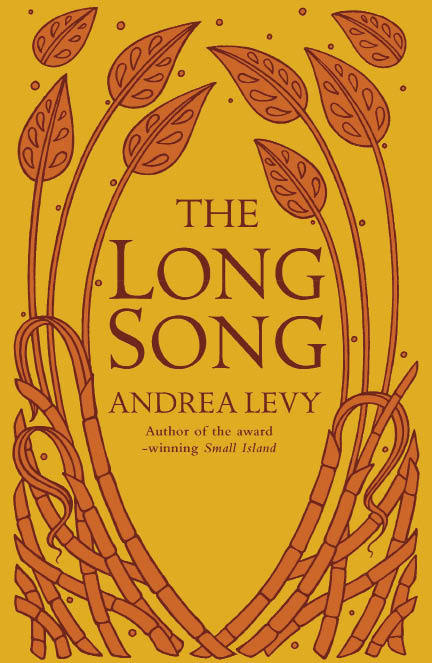It is to Andrea Levy’s credit that for this, her eagerly-awaited fifth novel, she adopts a narrative approach strikingly different from that of the best-selling, prize-winning, televised Small Island.
It is to Andrea Levy’s credit that for this, her eagerly-awaited fifth novel, she adopts a narrative approach strikingly different from that of the best-selling, prize-winning, televised Small Island. The Long Song is also an historical fiction, but it is as much a critique of the way history is made and distorted as it is an evocation of time and place.
Miss July was born a slave on a Jamaican sugar plantation. She experienced the Baptist war and the abolition of slavery, but, for her, ‘freedom’ was an ambivalent concept; in old age she is rescued from destitution by her pious son, Thomas Kinsman, whom she abandoned at birth. Thomas, a printer-publisher, is a model of a successful black businessman, making the most of post-abolition possibilities. His daughters, who squabble over the colour of their hair-ribbons as frivolously as any pampered white girls, have no knowledge of their grandmother’s brutal past.
But old July has ‘a story that lay so fat within her breast’ that it must be told. Her white mistress taught her basic literacy so that she could do the estate accounts; nonetheless, in July’s youth, ‘writing the letters ABC could have seen her put to the lash’, and she must rely on her son, educated in England, to shape her narrative, as well as to supply her with paper and ink. ‘My particular skill’, says Thomas, ‘is to find meaning in the most scribbled of texts’; from the start, we are aware that, in historical documents, ‘meaning’ can be constructed as well as found.
July warns us to expect no beauty or poetry; she has ‘a forthright tongue and little ink’. Her Jamaica is dark, hot, dangerous, a prison rather than a homeland. She is scornful of the evidence of others — slave-owners’ memoirs, a Baptist magazine written for a do-gooding English public, a portrait commissioned to put a proud front on a hollow marriage, are all dismissed. But July herself is a deceitful character. When she slyly urges us to ‘take my word upon it’, we know that we must read between every line.
July has no surname and no fixed cultural identity. Her son’s name, Kinsman, ironically belongs to the white Baptist minister who adopted him. She has two forenames: ‘July’ from her black slave mother (the only character capable of selfless love) and ‘Marguerite’, imposed on her to suit her white owner’s fancy. Her father was the Scottish overseer on the plantation, the most revolting of a grim bunch of white ‘bakkras’. July knows her father’s true character, but clamours for acknowledgement of her Scottish heritage; her strongest motivation is to raise herself above the former slaves amongst whom she has spent her life.
This is not attractive. July has inherited her mother’s courage and strength, but like her father she is callous, duplicitous and cruel. She bears two children; the black one, Thomas, she abandons, the nearly-white daughter she treasures. Levy subtly combines the contradictions and absurdities of the slave-owning system within her central character, but in so doing she produces a most unlikeable heroine.
Small Island was emotionally, politically and structurally balanced. The Long Song is much messier. The hectic pace, the piling of horror upon horror, the extreme behaviour of most of the characters, combine to convey a powerful sense of a social system on the point of collapse, but leave the reader little time or space for emotional engagement. Levy is brave in her uncompromising portrayal of ambivalence, and in her refusal to make things comfortable; though July is reunited with her son, through his English-instilled sense of duty and charity, the loss of her daughter remains an unresolved tragedy. I couldn’t warm to The Long Song, but nor will I lose the understanding that ‘sweetness comes at a dear price here upon this sugar island’.






Comments